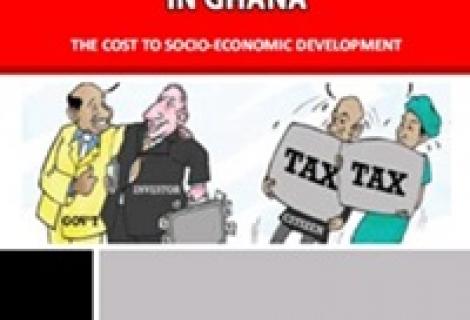
Ghana's trade policy and development agenda have over the years been dictated by the desire to attract Foreign Direct Investment and to increase export earnings. Tax incentives have, therefore, been a major strategic tool to achieve these goals. The result is that, trade taxes have declined, and currently Ghana has one of the overall lowest tax rates in the West Africa sub-region. While this may have boosted Ghana's competitiveness, it has tended to, at the same time, undermine the harmonisation of trade and investment regimes across the sub-region through initiatives such as the ECOWAS Common External Tariffs (CET). Ghana's trade and investment strategy has invariably contributed to the “race to the bottom”
phenomenon that has bedevilled the sub-region in the last three decades.While some gains have been realised–in the form of marginal increase in investment and exports–these may return negative values when set against the numerous tax incentives granted these investors. Ghana's Free Zones in particular has shown significant improvement infinancial performance since 2007, but the fact that the country's trade balance is still in the negative suggests that the Free Zones concept has so far failed to turn the trade balance in Ghana's favour. In respect of Ghana's location tax incentive regime, the study finds that contrary to popular assertions, tax incentives on their own do not attract FDIs but other factors such as skills pool, availability of social and infrastructural facilities such as good schools, health facilities, road network, electricity etc. may also count as significant considerations in investment decisions. In estimating the value of revenue lost through tax incentives, largely as a result of inadequate official data sources, the study relied on alternative data sources such as national budget statements to arrive at the overall tax losses. The study estimates that Ghana may be losing close to US$1.2 billion annually as a result of tax incentives. This is usually about half the entire annual Government of Ghana budget for education. While the study recognises some usefulness of tax incentives, it emphasises the need to gauge how much is given as tax incentives against the expected benefits. The study particularly identifies as a major problem, the arbitrariness or the discretion in tax incentive administration in Ghana, such as the use of permits at the ministerial level without recourse to procedural steps set out in the statutes. In almost all cases, parliamentary approval is required in the granting of tax incentives but evidence from this study shows that parliamentary approval is sometimes by-passed, resulting in excessive and unregulated granting of tax incentives. The study cites as an example, the case of SINOPEC, the Chinese firm undertaking the construction of Ghana's Western Corridor Gas Infrastructure Project, which has been granted exemption from import duties, VAT, and corporate income tax by the Ghana Gas Company without prior parliamentary approval. In response to public pressure, the Minister of Finance and Economic Planning is now putting together the necessary documentation for parliamentary ratification.